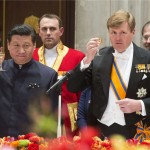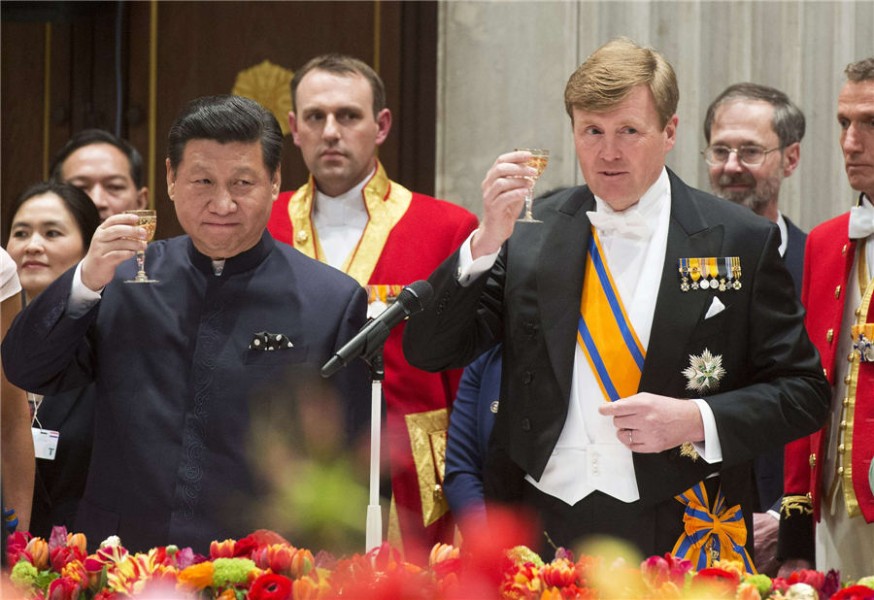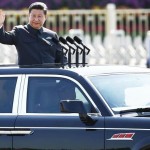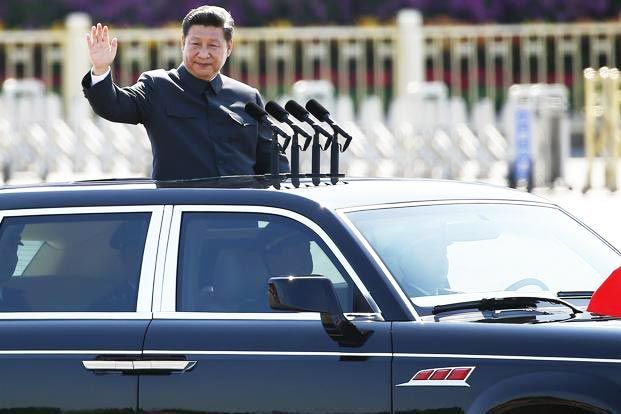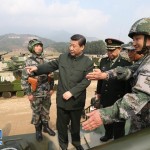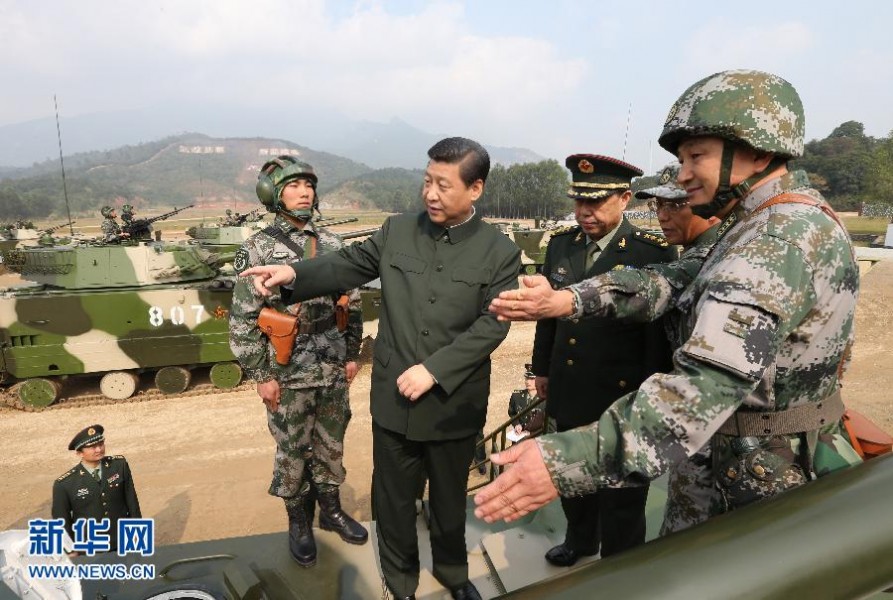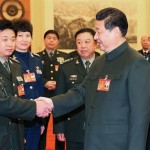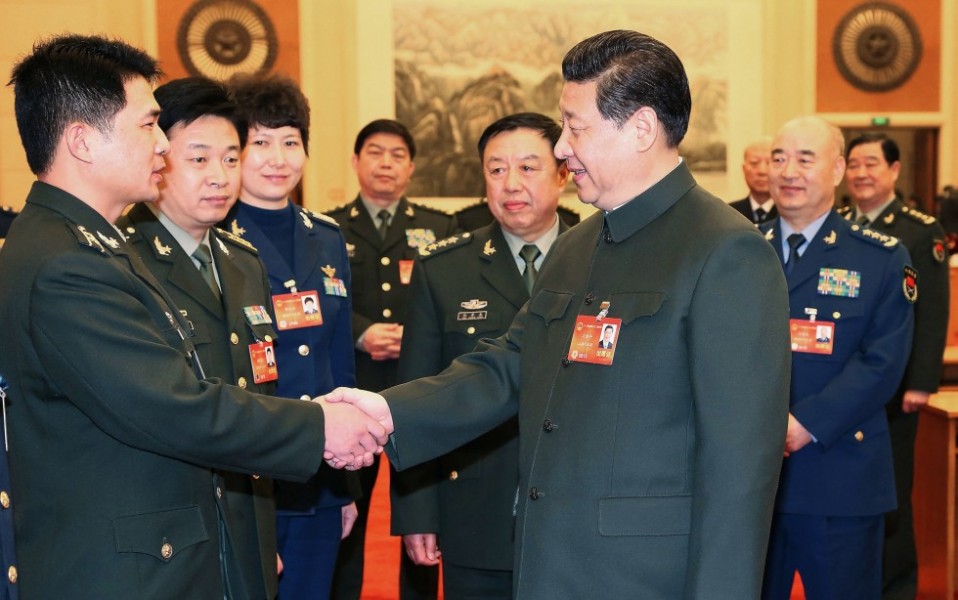China’s President Xi Jinping isn’t just a leader of people, but a leader of trends. At the same time Xi has served as the ideal model for a husband due to his masculine qualities, his love of soccer has led to mandatory training nationwide. Furthermore, his public disdain for “weird architecture” last year has led to this year’s full-on ban on offending buildings.
And now, if a draft proposal before the Chinese People’s Political Consultative Conference is to become law, Chinese may end up looking like the auburn-haired barrel-chested president as well.
The Central Committee of the Revolutionary Committee of the Chinese Kuomintang has submitted a draft proposal that would institute the Mao suit, a Xi Jinping fashion staple worn during formal occasions, as becoming the national standard in China.
President Xi has been seen wearing the Mao suit at a number of formal occasions, such as during a state visit with Dutch King Willem-Alexander. Xi also wears the Mao suit in his capacity as leader of China’s armed forces, such as during last year’s military parade that commemorated the end of World War II.
However, the Mao suit has mostly disappeared from the public eye since the 90s in favor of Western-styled suits and ties. But that’s no reason to ditch this quintessentially Chinese fashion piece, as explained by deputy director of the KMT central committee Xiu Fujin:
Mao Zedong, Deng Xiaoping, Zhou Enlai, and other Chinese leaders wore Mao suits for important occasions, so why does our present generation only wear Western suits?
Xiu noted that this was not just an issue of fashion, but of nationality. And with President Xi serving as the only public figure popularizing the Mao suit, it appears that “looking the part” in China is more important than ever.
The Mao suit gets its distinctive style from being the sum of competing influences from the East and West. First introduced by Sun Yat-sen in the 20s after whom it received its Chinese name, the Mao suit was best popularized by Mao Zedong who appropriated the tunic into Chinese men’s and women’s fashion as well as military use.
Going retro always has the advantage of providing a look that is timeless when judged by modern sensibilities, but there’s so much more to the Mao suit. Sun Yat-sen infused political symbolism into the Mao suit, making it less a fashion statement and more a call to nationalism.
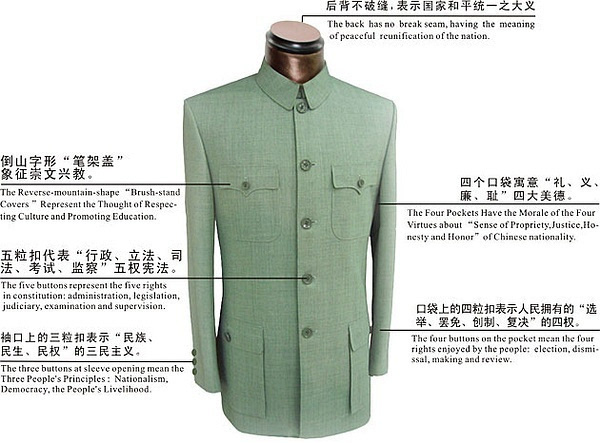
Every Mao suit has four pockets on the front to represent the Four Virtues: politeness, justice, honesty, and a sense of shame. The five buttons of a Mao suit represent the five branches of government in the constitution of the Republic of China. Similarly, the three buttons on the cuff of a Mao suit represent Sun’s Three Principles of the People: Nationalism, Democracy, and People’s Livelihood. Finally, the back of the suit is made of a single piece of cloth in order to signify the unity of the country.
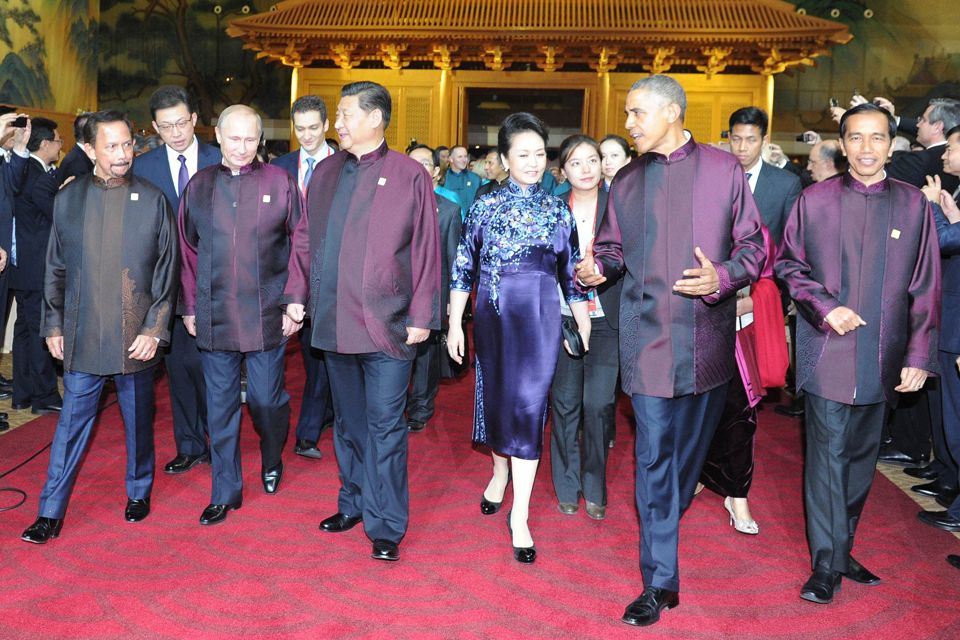
With its symbolism cast, the Mao suit attained international exposure during the 2014 APEC summit. That’s when world leaders including US President Barack Obama and Russian Prime Minister Vladimir Putin were all seen uniformly wearing a variation of the Mao suit. A tradition stemming from the 1993 summit when US President Bill Clinton handed out bomber jackets, Xi dressed up APEC attendees the same way he dresses for any important occasion that calls for a symbolic showing of Chinese nationalist principles.
So are Chinese fated to wear the Mao suit as compulsory and carry its heavy symbolism? We’ll just have to see. But if the Chinese public are going to take after President Xi’s fashions, they won’t be done until they start wearing Xi’s other noteworthy style contribution: the windbreaker.
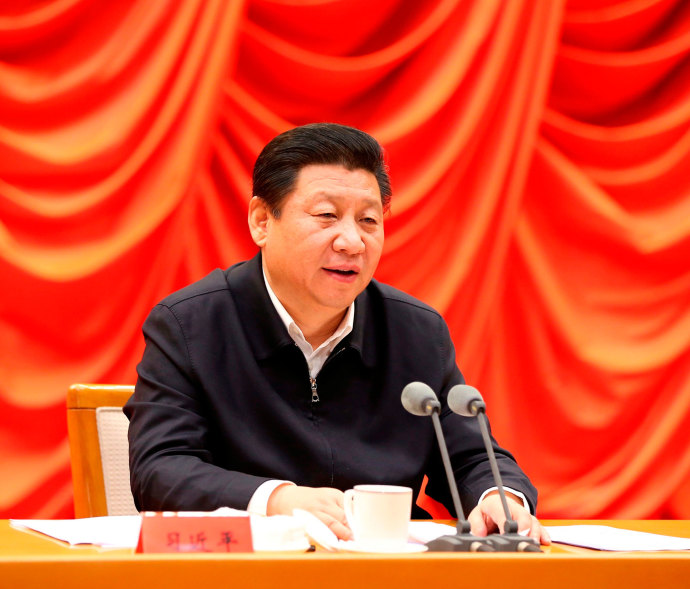
As the New Yorker noted, Xi has shown a predilection for wearing the windbreaker ever since coming to power. However, unlike the Mao suit, Xi’s choice of the windbreaker has really rubbed off on his peers.
The trend is most noticeable in Chinese politicians seen in public with Xi who have all been seen wearing a Xi-style windbreaker. For example, during the public revamping of the National Museum of China in November when he first came into power, five of the brand-new Politburo Standing Committee’s seven members wore windbreakers, as did President Xi.
The windbreaker has its own connotations that include informality, frugality, and wholesomeness. It’s a piece of clothing that many Chinese already wear, but not one because they want to necessarily exude a sense of humility.
So even if the draft proposal becomes law and the Chinese public have to wear Mao suits by law, they won’t always be following in the President’s fashion choices. That is, not when President Xi has appropriated the dress of your everyday, average Chinese.


